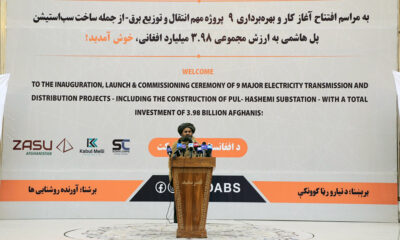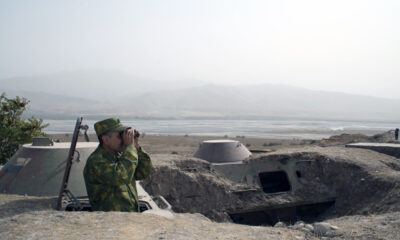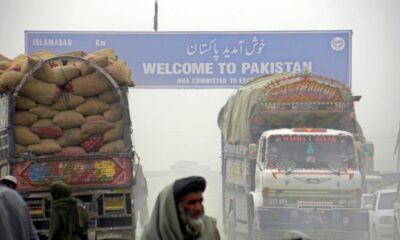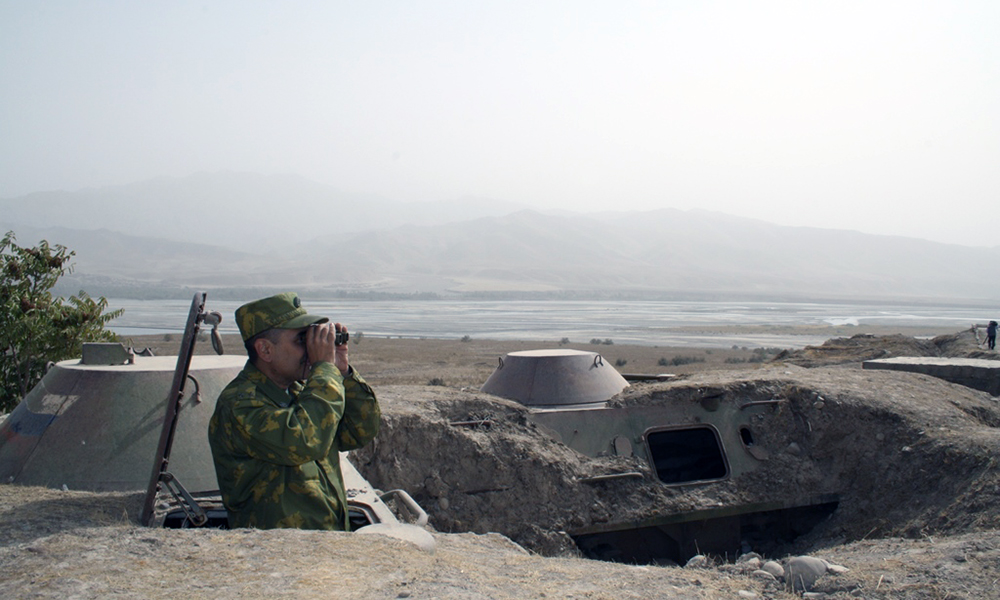Latest News
Bayat Power set to launch phase two of its gas to electricity power generating project

Bayat Power is hoping to start work on phase two of Bayat Power-1 in northern Jawzjan province in order to increase its electricity production output for Afghanistan.
Company officials said Sunday they have started discussions with relevant government departments in order to start the project.
Mohammad Shoaib Sahibzada, the technical head of Bayat Power, said once complete the second phase of the power plant project will add about 100 megawatts of electricity to the national grid. He said eventually, phase three will push output up to 200 megawatts.
In 2019, Bayat Power started work on Bayat Power-1’s 40MW gas-fired turbine, which achieved commercial operation later that year in Sheberghan. The plant uses Siemens Energy’s SGT-A45 mobile gas turbine, which will be integrated into phase two of the project.
Sahibzada meanwhile said phase one of the project, completed in November four years ago, has an output capacity of 40 megawatts and has provided hundreds of thousands of people with electricity in this time.
He also stated that the SGT-A45 turbine has the ability to produce 300 million kilowatts of electricity annually, which will be supplied to residential areas, mosques, universities, schools and hospitals in Jawzjan, Sar-e-Pul and Balkh provinces.
“The leadership of Bayat Power is in contact with the relevant departments and officials. Talks have started so that we can begin and implement the second phase of this project,” said Sahibzada.
He added that they have a contract with Da Afghanistan Breshna Sherkat (DABS), the country’s power supply company, for the distribution and regulation of electricity produced by Bayat Power, and that the company has signed another contract with Afghan Gas Company to increase the supply of natural gas.
Sahibzada also said Bayat Power has close working partnerships with DABS, Afghan Gas and other institutions including the Ministries of Mines and Petroleum, Energy and Water, as well as Siemens Energy – all of which help to provide more electricity to the nation.
“The benefits of this project from the point of view of electricity supply is that it was already able to provide electricity to hundreds of thousands of families, and the installed turbine has the [output] capacity of 40 megawatts of electricity,” Sahibzada added.
He also said phase two will bring the company closer to reaching its goal of producing 300 million kilowatt hours of electricity annually.
The Islamic Emirate has meanwhile welcomed Bayat Power’s plans to expand the output capacity. The IEA’s spokesman Zabihullah Mujahid said the Islamic Emirate gives its full support to the private sector.
“For the Islamic Emirate of Afghanistan, electrical energy is very important, it has vital value. Therefore, the Islamic Emirate pays a lot of attention to the private sector, if a company obtains an achievement, it means that it has been paid attention to. The Islamic Emirate has used all the possibilities to support the private sector and they are definitely moving forward,” said Mujahid.
Bayat Power was founded by the Bayat Group in 2013 with the aim of providing domestically produced electricity to the people of Afghanistan.
The power plant utilizes advanced and efficient technology, offering significantly more power and higher efficiency compared to other mobile gas turbines worldwide.
The project, in addition to generating significant tax revenues to the government, has created thousands of direct and indirect job opportunities for Afghans, contributing to the nation’s economic condition and fostering new technical skill sets amongst talented citizens.
Bayat Power, is in fact a trailblazer in Afghanistan’s independent power production sector, and just last week was awarded the prestigious Asian Power Award 2023 for its groundbreaking gas-fired mobile power plant.
On hand to accept the award on Wednesday night was Bayat Power’s CEO Ali Kasemi who said it was an honor and a privilege for the company to receive the accolade. He also said the award was an acknowledgement of the hard work and tenacity of Afghans in their quest for energy security and self-sufficiency in the power sector.
“Bayat Power is extremely proud that the Asian Power Awards have recognized our project as the Gas Power Project of the Year in Afghanistan. But we are even prouder of our continued efforts to improve the lives of Afghans across the country, enabling students to study at night, allowing health workers to provide critical services 24/7, supporting factory production, and lighting up cities, streets, mosques, and homes nationwide,” said Kasemi.
Latest News
Tajikistan says two soldiers killed in clash with militants near Afghan border
Business
Afghanistan’s first aluminum can factory launched in Herat with $120 million investment
Mullah Abdul Ghani Baradar, Deputy Prime Minister for Economic Affairs, laid the foundation stone of the “Pamir” aluminum can production company at the industrial parks of Herat on Thursday.

Afghanistan’s first aluminum can manufacturing plant was officially launched on Thursday in Herat province, marking a significant step toward industrial development and economic self-reliance.
Mullah Abdul Ghani Baradar, Deputy Prime Minister for Economic Affairs, laid the foundation stone of the “Pamir” aluminum can production company at the industrial parks of Herat on Thursday.
According to officials, the Pamir factory is the first of its kind in Afghanistan and is being established with an investment of $120 million. The project will be built on 16 jeribs of land within Herat’s industrial zones.
Once completed, the factory is expected to create employment opportunities for around 1,700 Afghan citizens. Officials say the project will play a key role in boosting domestic production, reducing reliance on imports, and strengthening the national economy.
Authorities described the launch of the project as a clear sign of growing investment in the industrial sector and ongoing efforts to promote economic self-sufficiency in the country.
Latest News
Medvedev: IEA posed less threat to Russia than western-backed groups
He added that such organisations have consistently pursued one objective: “to break apart the multiethnic people of Russia.”
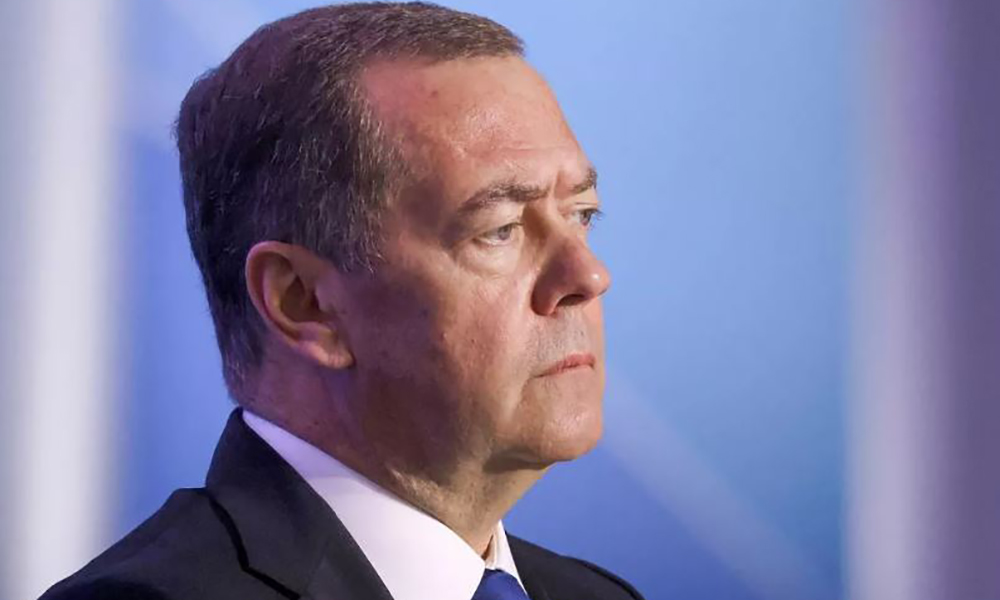
Russia’s Deputy Chairman of the Security Council, Dmitry Medvedev, has said that the Islamic Emirate of Afghanistan (IEA) caused less harm to Russia than Western-backed civic organisations that, he claims, sought to undermine the country’s unity.
In an article published in the Russian journal Rodina, Medvedev wrote that while the IEA had long been designated as a terrorist organisation, its actions did not inflict the same level of damage on Russia as what he described as Western-supported institutions operating under the banner of academic or humanitarian work.
“Let us be honest: the Taliban (IEA) movement, long listed as a terrorist organisation, has caused modern Russia far less damage than all those pseudo-scientific institutions whose aim is to dismantle our country under the guise of aiding the oppressed,” Medvedev stated.
He added that such organisations have consistently pursued one objective: “to break apart the multiethnic people of Russia.”
Medvedev’s remarks come amid a shift in Russia’s official stance toward Afghanistan. In April, Russia’s Supreme Court suspended the ban on the Islamic Emirate of Afghanistan, which had previously been included on the country’s list of terrorist organisations.
-

 Latest News2 days ago
Latest News2 days agoAfghanistan exports 10 containers of batteries to Saudi Arabia and UAE for first time
-

 Latest News2 days ago
Latest News2 days agoPakistani cleric condemns lifetime immunity for Army Chief as un-Islamic
-

 Latest News4 days ago
Latest News4 days agoAfghanistan signs 30-year deal for marble mining in Daikundi
-

 Latest News5 days ago
Latest News5 days agoAfghan health minister calls for medical cooperation between Kabul and New Delhi
-

 Latest News4 days ago
Latest News4 days agoBush Institute criticizes Trump administration’s Afghan immigration freeze
-

 International Sports2 days ago
International Sports2 days agoAriana News to broadcast key AFC Champions League Two clash
-

 Regional2 days ago
Regional2 days agoPakistan agrees to $4 billion arms deal with Libyan National Army
-
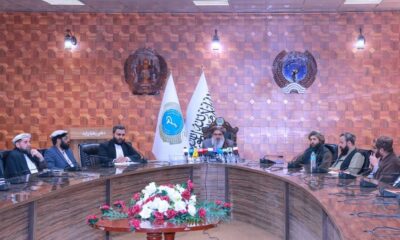
 Health2 days ago
Health2 days agoAfghan Health Minister hails India visit as new chapter in bilateral ties


